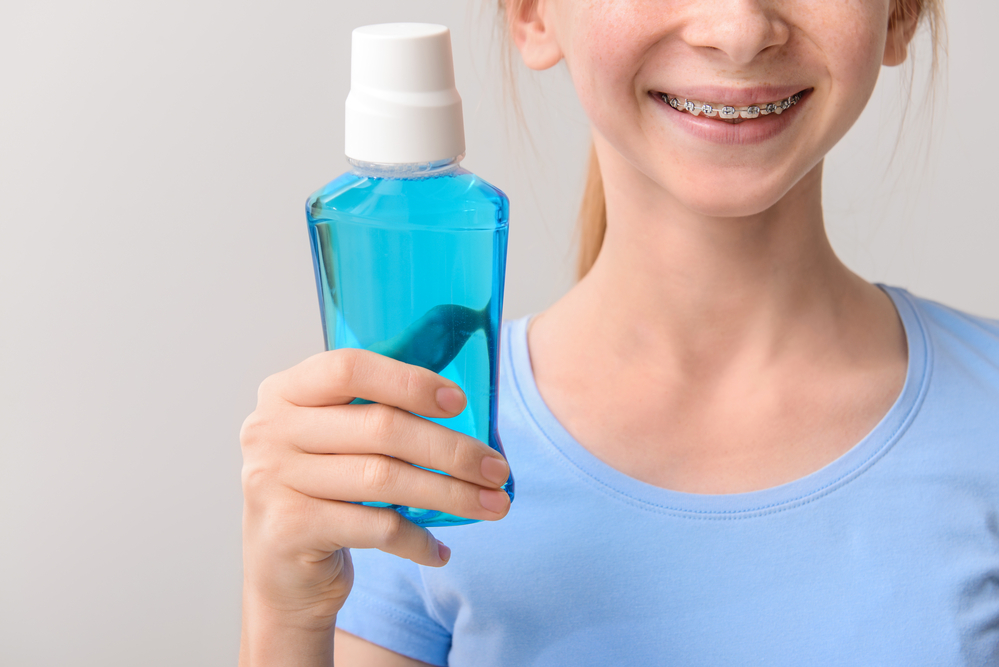
Braces are an incredible tool that can correct crooked teeth and give you a straight smile like you’ve always wanted. After first getting braces on, some significant adjustments need to be made to your daily hygiene routine to avoid embarrassment. One common issue orthodontic patients face is persistent bad breath.
Here are eight proactive ways to prevent bad breath from taking over your social life while wearing braces.
What’s Causing Bad Breath With Braces Anyhow?
Orthodontic patients who are wearing braces are more susceptible to bad breath than people who aren’t wearing braces. This is because there are higher chances for food to get stuck in the gaps that the braces are creating between the teeth. Food gets stuck in these spaces, which creates bacteria that can give you bad breath.
Brush (and Floss!) Regularly
An excellent oral hygiene routine is always essential, but that is especially true for orthodontic patients. While wearing braces, you need to brush your teeth in the morning, at night, and after a meal. If bad breath is still troubling you after brushing twice a day, you may need to increase how often you’re brushing and flossing. A floss threader can be especially helpful in removing food particles from small spaces where your toothbrush cannot reach.
Try a Water Flosser
A Waterpik, or water flosser, is ideal for cleaning between the gums and teeth while wearing braces. Water flossers can clean hard-to-reach places where bacteria can grow. The powerful jet of water is able to clean the teeth and gums more effectively than a toothbrush or regular floss.
Incorporate an Antibacterial Mouthwash
After brushing and flossing, using an antibacterial mouthwash will help you avoid bad breath while wearing braces. Mouthwash can get into the space between teeth and brackets to kill germs and bacteria. If you are sensitive to mouthwash, look for one that does not include alcohol.
For a more natural approach, adding a few drops of tea tree oil and peppermint oil into a cup of water with baking soda will create a natural rinse. The mixture will provide you with an antibacterial solution that disinfects the mouth.
Drink More Water
A dry mouth will reduce the production of your body’s saliva. A warm and dry environment such as this creates the ideal setting for bacteria to thrive. Dehydration will also increase the chances of developing bad breath. Ensuring you are drinking enough water throughout the day will prevent dehydration while also promoting your saliva production.
Avoid Strong-Smelling Foods
Choosing the right foods to eat with braces is essential. Avoid sugary and sticky sweets as they often lead to oral health issues like cavities and tooth decay. It’s also recommended to avoid foods with strong-smelling ingredients such as garlic if you’re struggling with persistent bad breath.
Keep Breath Mints Handy
Persistent bad breath that still lingers after improving your oral hygiene habits can be temporarily remedied with breath mints. Avoid breath-freshening gum as it is likely to stick to braces. While breath mints aren’t going to cure your bad breath, they will help to keep things fresh until your mouth can get adjusted to your improved hygiene efforts.
Have a Professional Teeth Cleaning
Routine dental appointments are essential when you are going through orthodontic treatment. Your orthodontist is monitoring your teeth differently during your checkups. Unless your dentist is treating you for braces, your teeth will not be examined for things like tooth decay and cavities at your checkups. Having your teeth professionally cleaned can help to identify any issues that may be causing bad breath.
See Your Orthodontist
Ensuring that your orthodontic treatment is on track is one of our top priorities. If you have any concerns over persistent bad breath while wearing braces, let Thomas Orthodontics know at your next checkup appointment. Understanding how bad breath forms is essential to preventing it from happening to you.





